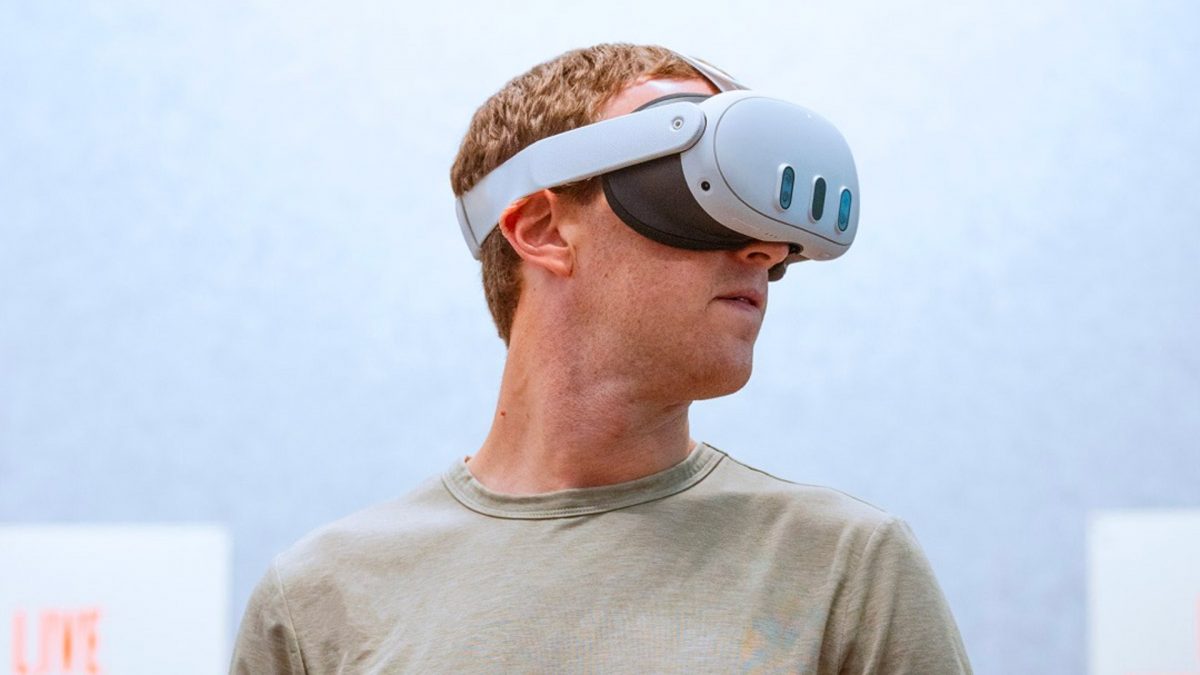If Mark Zuckerberg’s reaction to Apple’s Vision Pro mixed reality headset was anything to go by, Meta seems worried about Apple taking a sizeable bite out Meta’s Quest headsets. In order to stop that from happening, Zuckerberg wants to get his customers when they are pretty young.
Meta, the parent company of Facebook and Instagram, is gearing up to introduce its virtual reality headset into classrooms, offering students as young as 13 years old, an immersive educational experience.
With this move, Meta claims that it wants to revolutionise traditional learning by enabling students to explore the world, irrespective of the world or time they are in.
Using Meta’s Quest VR headsets and metaverse, students will be able to visit ancient Rome or visit some of the most popular museums in the world.
Students, for example, can visit the Louvre in Paris, France, from their classrooms in anywhere in the world.
The social media giant is making this move as Meta and other social media platforms are under congressional scrutiny for the lack of protections for children online.
However, Meta sees its foray into education as a strategic step in its massive pivot towards virtual and augmented reality technologies, despite the slow uptake of these technologies so far. By introducing VR technology into classrooms, Meta hopes to increase its visibility and familiarity among younger users.
Impact Shorts
More ShortsNick Clegg, Meta’s president of global affairs, emphasized the company’s patient approach to this endeavour, highlighting their commitment to encouraging the use of VR technology.
Meta’s expenses for this year are expected to soar, primarily directed towards building the necessary technology infrastructure for virtual reality and artificial intelligence tools.
The COVID-19 pandemic thrust education technology into the spotlight, prompting schools to transition to virtual classrooms and invest heavily in devices to facilitate remote learning. Meta’s VR technology, yet to be named, would allow teachers to manage multiple student headsets and provide access to educational apps on Meta’s Quest devices. Similar to Quest for Business, which Meta launched last year for office use, the educational product would likely operate on a subscription basis.
Meta seems to be taking after the same model that was once deployed by Apple, and then Microsoft. Both these tech giants once funded local schools in the US by providing them with PCs and Macs for their classes or computer labs. The idea was, that once the students grow into adults, they are more likely to buy an operating system that they have been using, regardless of the performance of their machines.
That is why, American Tech companies offer massive discounts to students in the country across their range of products. Now though, instead of Windows machines, and Macs, most schools in the US have Chromebooks. Nonetheless, Apple still continues to provide special discounts on both their hardware as well as software for students.
Virtual reality headsets in classrooms could potentially become as commonplace as iPads, Google Chromebooks, and smart whiteboards, and revolutionise teaching methods.
Clegg noted that the education product was driven by demand from teachers and referenced a 2022 report showing improved student performance in the metaverse version of Morehouse College compared to in-person attendance.
While the benefits of immersive virtual reality in education are still being researched, early studies suggest it can enhance student motivation.
However, some studies also indicate that it may overwhelm students and hinder learning. Despite these challenges, Meta remains optimistic about the potential of VR technology to transform the educational landscape.
)